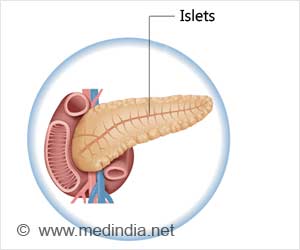
Individuals experiencing persistent and worsening metabolic syndrome, which includes high blood pressure, elevated blood sugar, excess abdominal fat, and abnormal cholesterol levels, are at an increased risk of developing various types of cancer. The findings are published by Wiley online in CANCER, a peer-reviewed journal of the American Cancer Society.
In the study, 44,115 adults in China with an average age of 49 years were categorized into 4 different trajectories based on trends from 2006 (the time of the first physical exam) to 2010: 10.56% exhibited a low-stable pattern and maintained low metabolic syndrome scores; 40.84% exhibited a moderate-low pattern and maintained moderate to low metabolic syndrome scores; 41.46% exhibited a moderate-high pattern and consistently maintained moderate to high metabolic syndrome scores; and 7.14% exhibited an elevated-increasing pattern in which initially elevated metabolic syndrome scores increased over time.
During the follow-up period of 2010–2021, with a median follow-up of 9.4 years, there were 2,271 cancer diagnoses among participants. Compared with participants with a low-stable trajectory pattern, those with an elevated-increasing trajectory pattern had 1.3-, 2.1-, 3.3-, 4.5-, 2.5-, and 1.6-times higher risks of developing any cancer, breast cancer, endometrial cancer, kidney cancer, colorectal cancer, and liver cancer, respectively.
Kidney cancer risk was mainly observed in those with persistently high scores without chronic inflammation.
Even when the low-stable, moderate-low, and moderate-high trajectory pattern groups were combined, the elevated-increasing trajectory pattern group had higher risks of developing all cancer types.
“This research suggests that proactive and continuous management of metabolic syndrome may serve as an essential strategy in preventing cancer,” said senior author Han-Ping Shi, MD, PhD, of Capital Medical University, in Beijing. “Our study can guide future research into the biological mechanisms linking metabolic syndrome to cancer, potentially resulting in targeted treatments or preventive strategies. Formal evaluation of these interventions will be needed to determine if they are able to modulate cancer risk.”
Source-Eurekalert



